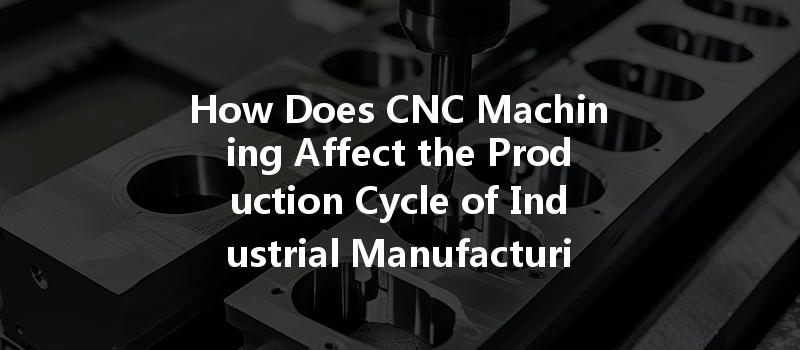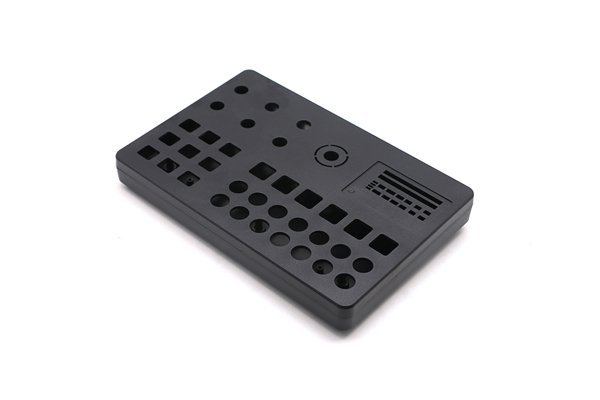Did you know that Computer Numerical Control (CNC) machining can reduce production time by as much as 75% when compared to traditional machining processes? This astounding capability not only enhances efficiency but also revolutionizes how industries approach the production cycle. In an era where industries are pressed to optimize every step of their manufacturing process, understanding the implications of CNC machining on the production cycle is more relevant than ever.
to CNC Machining
CNC machining uses computer-controlled tools to manufacture parts from various materials with intricate precision. By automating the cutting, milling, and drilling processes, CNC machines can produce complex shapes and designs that would be challenging or impossible to achieve using traditional machining methods.
In the context of a production cycle, the implementation of CNC technology affects various factors, including design, lead time, labor costs, and material waste. Let’s delve deeper into how CNC machining impacts the production cycle across different industrial sectors.
The Role of CNC Machining in the Production Cycle
CNC machining opens doors to flexibility in design, allowing engineers and designers to iterate quickly. Rapid prototyping enables organizations to create a prototype within a fraction of the time it would take with traditional manufacturing techniques.
When CNC machines are involved, design modifications can be implemented seamlessly in the software before a single part is produced. For industries like aerospace, automotive, and medical devices, where precision and customization are crucial, CNC machining can significantly shorten the timeline from concept to finished product.
The advanced modeling software also enables simulation and testing of different design scenarios virtually. This reduces material waste, as parts can be optimized before physical production. In essence, CNC machining initiates a more streamlined and efficient production process right from the design stage.
One of the main challenges in industrial manufacturing is maintaining consistent quality across multiple production runs. CNC machining ensures that each part is produced under precise conditions, as the computer-controlled systems operate with high levels of accuracy—often to tolerances of ±0.002 mm!
This high precision results in better quality control, reducing the likelihood of defects and the need for reworks. In sectors such as the automotive industry, where safety standards and reliability are paramount, the consistency brought by CNC machining significantly enhances the production cycle by minimizing product recalls and customer dissatisfaction.
CNC machining drastically decreases lead times as it facilitates quicker setups and changesover between production batches. When businesses need to manufacture parts in shorter runs or on a just-in-time basis, the agility of CNC machines makes this feasible.
Moreover, 24/7 automated operations are possible with CNC machining, enabling manufacturers to significantly increase output without labor satisfaction issues. The overall production schedule becomes more predictable, which is crucial for just-in-time inventory systems adopted by many modern manufacturers.
The automation provided by CNC machining not only speeds up production but also reduces labor costs. Fewer skilled machinists are required to monitor CNC machines that perform the bulk of the work; consequently, companies can allocate their workforce more efficiently.
This does not come at the expense of quality—CNC machines require operation supervision but automate the more strenuous and repetitive tasks, allowing skilled labor to focus on higher-level responsibilities, such as programming the machines or performing quality checks on finished products.

CNC machining is highly efficient in terms of material usage; advanced software ensures that the paths cut by the tools are optimized, which minimizes material waste. This is not only cost-effective but also environmentally friendly—a crucial aspect in today’s manufacturing landscape.
Efficient material usage means that companies can significantly lower their material costs, reducing expenses for raw materials and decreasing the need for disposal of wastage. Essentially, a smarter use of materials bolsters sustainability efforts while still enhancing production reliability.
The impact of CNC machining extends to how it can integrate with emerging technologies to further enhance the production cycle. For instance, the synergy of CNC with technologies such as the Internet of Things (IoT), Artificial Intelligence (AI), and advanced robotics creates ‘smart factories’ that can monitor and optimize production in real-time.
These technologies allow for predictive analytics where maintenance can be scheduled before failures occur, thus avoiding downtime that might otherwise disrupt the production cycle. It’s a seamless loop of design, production, and optimization that keeps working toward efficiency, quality, and cost-effectiveness.
Real-World Applications
Aerospace Industry
In the aerospace industry, the weight and strength of components are critical factors. CNC machining enables precision in creating complex geometries essential for aircraft parts while meeting stringent regulatory standards. The ability to rapidly prototype and iterate designs means that innovations in fuel efficiency and aerodynamics can be tested and implemented much faster than with traditional methods.
Medical Device Manufacturing
CNC machining also plays a crucial role in the production of medical devices, where precision and sterility are paramount. The ability to produce complex components at a rapid pace allows for swift responses to market needs and changes in healthcare technologies. CNC machining can manufacture parts for surgical tools, implants, and other life-saving equipment efficiently while maintaining rigorous quality control.
Automotive Sector
In the automotive sector, the ability to quickly design and manufacture components tailored to specific models helps manufacturers remain competitive. CNC machining allows for the creation of everything from engine blocks to intricate interior fixtures without compromising quality. As electric vehicles gain prominence, CNC technology adapts, ensuring that production remains agile to meet evolving consumer needs.
The influence of CNC machining on the production cycle cannot be overstated. From rapid prototyping and flexibility in design to precision, reduced lead times, and minimized labor costs, the multifaceted benefits of CNC machining have transformed how industries manufacture and deliver products.
As manufacturers continue to face challenges related to cost efficiency, quality, and speed, the importance of embracing technologies like CNC machining becomes increasingly apparent. In this era of advanced manufacturing, CNC machining not only optimizes production processes but also aligns businesses with sustainability goals and innovative practices.
Thinking critically about how CNC machining can reshape your production cycles may lead your enterprise toward greater efficiency, reduced costs, and a competitive edge in the market. The journey from concept to creation has indeed entered a new realm, and the benefits gained from CNC technology are not just worth considering—they are imperative for survival in today’s dynamic industrial landscape.






